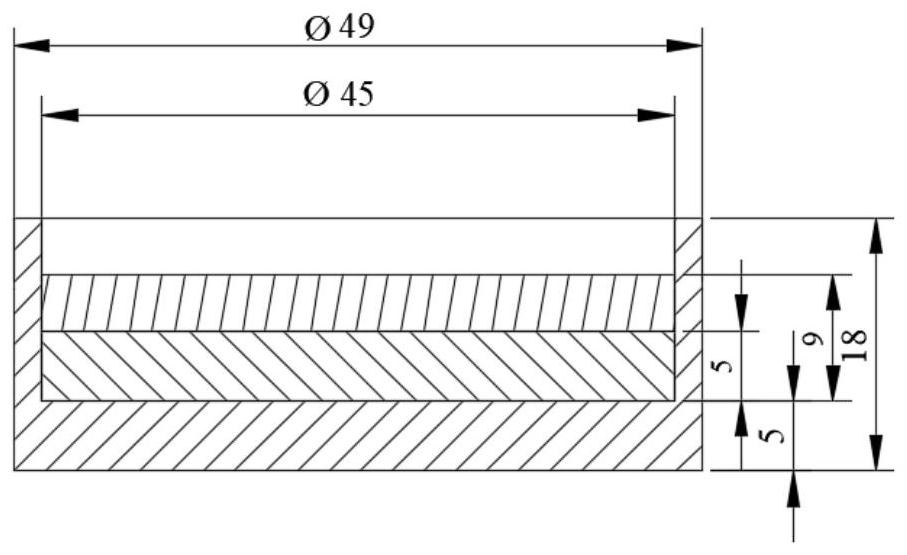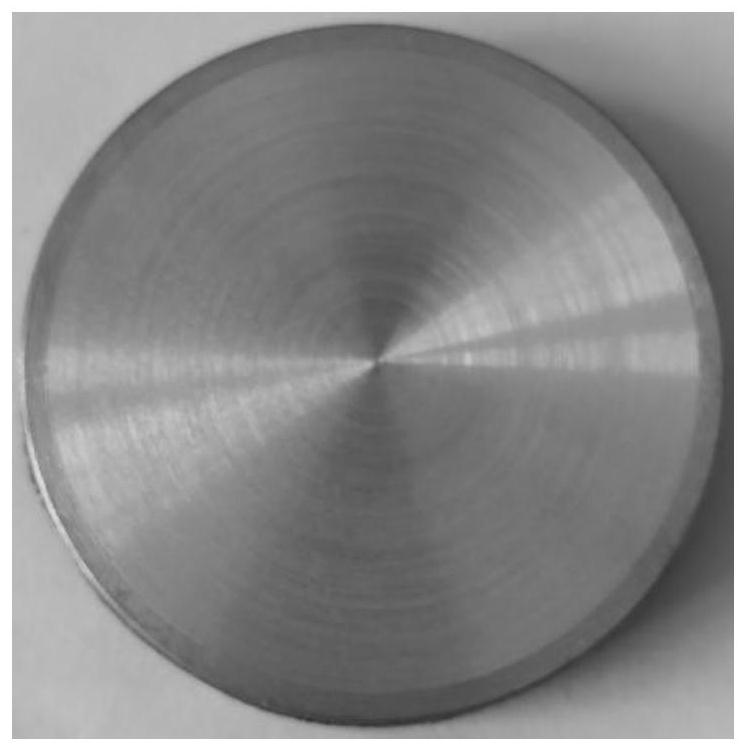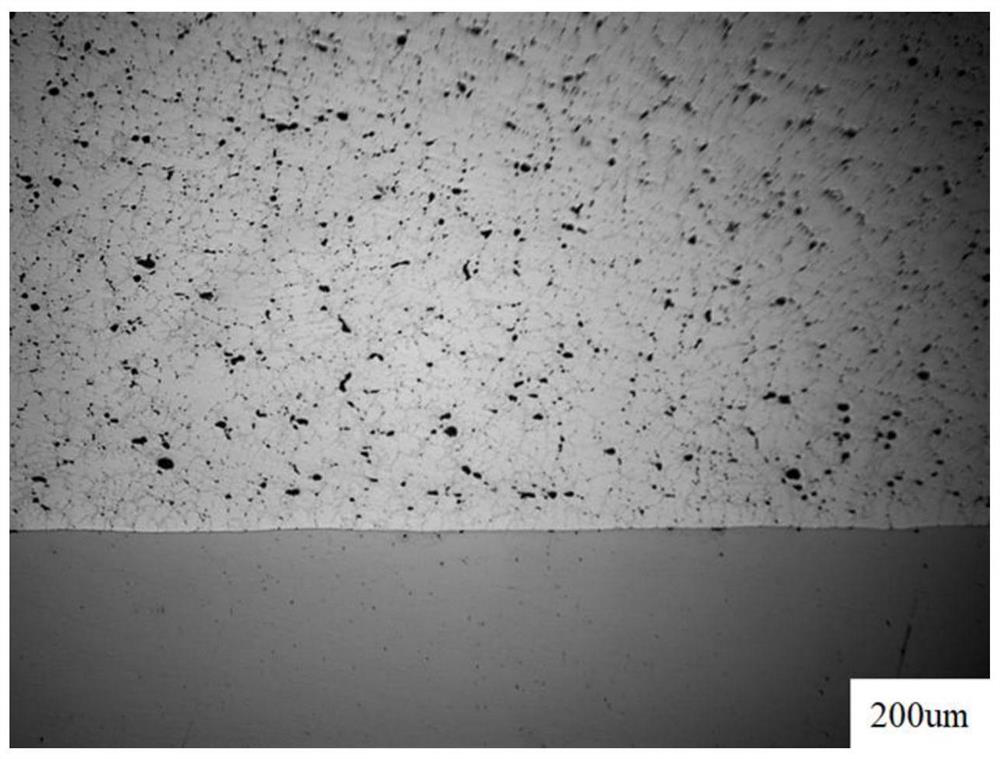Use method of composite phase change material in copper-steel double-metal casting process
A composite phase change material and bimetallic technology, applied in the direction of heat exchange materials, chemical instruments and methods, etc., can solve the problems that cannot meet the requirements of copper-steel bimetallic casting process, low thermal conductivity of specific heat capacity and latent heat of phase change, no correlation Reporting and other issues, to achieve good thermal insulation effect, good feeding effect, and avoid shrinkage and shrinkage cavities
- Summary
- Abstract
- Description
- Claims
- Application Information
AI Technical Summary
Problems solved by technology
Method used
Image
Examples
Embodiment 1
[0026] A method for using a composite phase change material in a copper-steel bimetal casting process, comprising the steps of:
[0027] Step 1, preparation of composite phase change material
[0028] Combine KF with MgF 2 According to the molar ratio of 30%: 70% mixed to form a molten salt; the molten salt, SiO 2 , stearic acid and borax are mixed and ball milled (the rotating speed of ball milling is 200r / min, and the ball milling time is 1.5h) evenly, and then pressed into a disc with a diameter of 45mm and a thickness of 4mm, the pressing pressure is 30MPa, and the holding time is 10min; The wafer was put into the sintering furnace, and under the protection of the ammonia gas decomposition atmosphere, the temperature was first raised from room temperature to 200°C at a rate of 3°C / min and kept for 60 minutes, and then raised to 1050°C at a rate of 5°C / min. Insulate for 1 hour to obtain a composite phase change material. Wherein, the mass percent of each raw material is:...
Embodiment 2
[0035] A method for using a composite phase change material in a copper-steel bimetal casting process, comprising the steps of:
[0036] Step 1, preparation of composite phase change material
[0037] Combine KF with MgF 2 According to the molar ratio of 35%: 65% mixed to form a molten salt; the molten salt, SiO 2 , stearic acid and borax are mixed and ball milled (the rotating speed of ball milling is 200r / min, and the ball milling time is 1.5h) evenly, and then pressed into a disc with a diameter of 45mm and a thickness of 4mm, the pressing pressure is 30MPa, and the holding time is 10min; The wafer was put into the sintering furnace, and under the protection of the ammonia gas decomposition atmosphere, the temperature was first raised from room temperature to 200°C at a rate of 3°C / min and kept for 60 minutes, and then raised to 1050°C at a rate of 5°C / min. Insulate for 1 hour to obtain a composite phase change material. Wherein, the mass percent of each raw material is: m...
PUM
| Property | Measurement | Unit |
|---|---|---|
| diameter | aaaaa | aaaaa |
Abstract
Description
Claims
Application Information
 Login to View More
Login to View More - R&D
- Intellectual Property
- Life Sciences
- Materials
- Tech Scout
- Unparalleled Data Quality
- Higher Quality Content
- 60% Fewer Hallucinations
Browse by: Latest US Patents, China's latest patents, Technical Efficacy Thesaurus, Application Domain, Technology Topic, Popular Technical Reports.
© 2025 PatSnap. All rights reserved.Legal|Privacy policy|Modern Slavery Act Transparency Statement|Sitemap|About US| Contact US: help@patsnap.com



